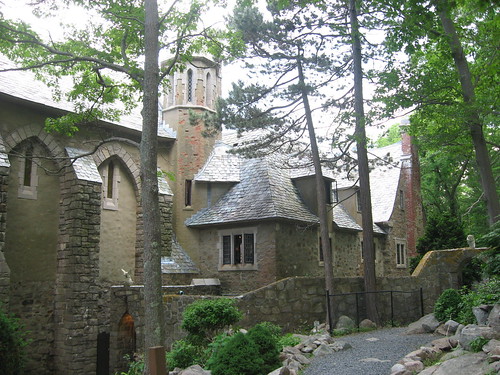 Looking for a nearby day-trip itinerary? If you have a web-enabled phone, Carl Carlsen's Poetry of Places in Essex County has a mini tour of some Gloucester sites that have inspired poets past and present. Driving directions here.
Looking for a nearby day-trip itinerary? If you have a web-enabled phone, Carl Carlsen's Poetry of Places in Essex County has a mini tour of some Gloucester sites that have inspired poets past and present. Driving directions here.Poetry of Places in Essex County focuses on the Lynn poets and Gloucester right now, but an update about Nahant—where Longfellow spent many summers with his family—is coming soon.
Prof. Carlsen also recommends contemporary Lynn poet Diane Kendig's latest chapbook, The Places We Find Ourselves, to be published by Finishing Line in July. Kendig was the North Shore Community College's poet in residence in 2007, and her current volume includes Lynn's Egg Rock as one of its many settings.
(Photo of Gloucester's Hammond Castle from herzogbr on Flickr)

